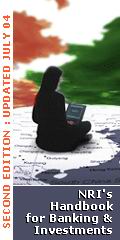|

|
Average losses to companies worldwide from economic crime increased by 40% in two years
Despite heightened efforts at regulation and control, fraud remains a major threat to companies around the world. Nearly half of all organisations, about the same level as in 2005, reported they were victims of some form of economic crime in the past two years, according to PricewaterhouseCoopers' 2007 Global Economic Crime Survey. The average direct financial loss to companies rose nearly 40 percent to US$2.4 from US$1.7 million during the period.
The biennial survey of 5,400 global companies, the most comprehensive study of its kind, conducted in association with Germany’s Martin-Luther University, Halle-Wittenberg, revealed that of the 43% that experienced economic crime in the last two years, the total direct losses exceeded US$4.2 billion. The losses arose from a variety of economic crimes, including asset misappropriation, accounting fraud, bribery and corruption, money laundering, and intellectual property infringement.
In addition to the direct financial costs of fraud, companies also reported suffering significant “collateral damage” to the day-to-day operations and success of their businesses. Of those reporting fraud, 88 percent reported the fraud had damaged their brand and impacted staff morale, 84 percent said it had harmed their relations with other companies, and increased the costs of dealing with regulators, and 69 percent said it had negatively affected their share price.
The survey, entitled "Economic Crime: People, Culture and Controls," released in October 2007, found that economic crime is all but universal, affecting companies of all sizes, on all continents and in all industries. And while fraud remains intractable -- fraud levels have not dropped in the eight years since PwC initiated the survey -- most companies are confident that their control measures will limit their exposure to fraud in the future. Only 11 percent consider it likely they will be the victims of fraud in their country during the next two years.
"It is simply impossible to eliminate economic crime. It's like fighting the mythical Hydra, cutting off one form of fraud merely allows another to grow," said Steven Skalak, Global Investigations and Forensics Leader, PricewaterhouseCoopers. "Controls alone are not enough. The answer lies in establishing a culture that supports control efforts and whistle-blowing with clear ethical guidelines. Companies need to build loyalty to the organisation give employees the confidence to do the right thing, and identify clear sanctions for those who commit fraud, regardless of their position in the company."
The 2007 survey revealed a direct correlation between the size of a company and the prevalence of fraud. Among companies of 5,000 or more employees, 62 percent reported being victims of fraud. That number dropped to 52 percent for companies with 1001 to 5000 employees and to 32 percent for small companies of less than 200 workers.
No industry is immune to fraud. Fraud was most prevalent in the insurance and retail sectors, where 57 percent of companies reported fraud, followed by the government and the public sector, with 54 percent, financial services, 46 percent, and automotive, 44 percent. The types of fraud most common to each industry, varies due to their unique operating characteristics.
Theft was the most common type of fraud, reported by 30 percent of those who said they had experienced economic crime. Intellectual property infringement was reported by 15 percent, corruption and bribery by 13 percent, accounting fraud by 12 percent, and money laundering by four percent.
Of those responsible for committing fraud, 85 percent are male, most often between the ages of 31 and 50, with half having college educations or advanced degrees. More than half were employed by the defrauded company, 26 percent in senior management, and 43 percent had more than five years with the company.
"Two elements are need for fraud to occur -- motive and opportunity," Skalak said. "The most common motives for fraud are simple -- need and greed. Opportunities for fraud arise as a result of a weak control environment and from a corporate culture that does not engender loyalty, ethics and compliance."
According to the survey, reasons cited to explain why individuals committed fraud included financial incentives, 57 percent, expensive lifestyle, 36 percent, and career disappointment, 12 percent. Weak controls were cited in about a third of cases, a low level of commitment to the company, 34 percent, relative anonymity, 17 percent, lack of clarity about the company's ethics, 14 percent and temptation, 44 percent.
For frauds to continue for extended periods, the executives involved must be able to rationalize their behaviour, which can include justifications like "it's really for the company's benefit" or "it’s a gray area". In 40 percent of reported frauds employees lacked awareness of wrongdoing, and in 26 percent denied the financial consequences to the company.
Forty-three percent of fraud was initially detected via a whistleblower hotline or other tip off -- while the most effective control measure -- internal audit -- was the initial detection method in 19 percent of reported cases, highlighting the importance of a transparent corporate culture that enables employees to recognize and expose improper conduct.
Companies that experienced at least one significant structural change - a merger, acquisition, reorganization, or staff reductions - reported increased levels of fraud. "An acquisition, creation of a new venture, combining processes and IT systems, changes in personnel, the interaction with new customers and suppliers, and dealing with new cultures or foreign countries all create a fertile environment for fraud to flourish," Skalak said.
Fraud was as prevalent in the fast-growing E7 emerging economies, (Brazil, China, India, Indonesia, Mexico, Russia and Turkey) as in more developed countries, but the cost of fraud was significantly higher in emerging economies. In total the E7 countries accounted for more than 45 percent of the US$4.2 billion in financial losses reported globally. Companies with operations in E7 countries reported average losses from fraud of $5.1million; more than double that of companies not operating in such territories.
In the E7 markets, at least one in four companies and in some countries half of all companies reported they had been asked to pay a bribe. Corruption and bribery and intellectual property theft are the major concerns of corporations establishing operations in emerging markets. Although companies have implemented control measures, many remain uncertain of how best to address such risks.
"Companies doing business in emerging economies need to understand the fraud risks they will face in different cultures and anticipate that they may be asked to participate in inappropriate schemes. Resisting corruption may be especially difficult in the face of market competition and internal pressure to deliver results," Skalak said. Companies need to understand how they will deal with fraud and corruption before they invest. Controls that work in developed economies may not be as effective in emerging markets."
(This is the press release of PricewaterhouseCoopers)
CLICK FOR MORE FEATURES & STORIES

|
|





|








